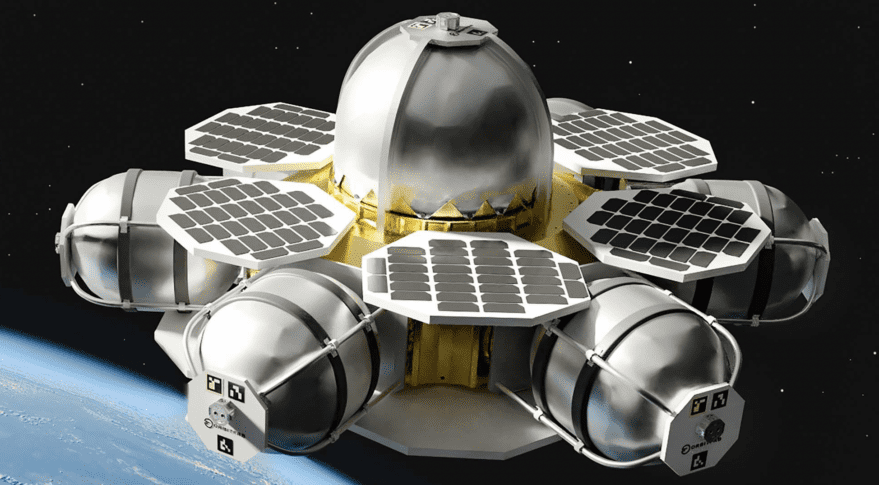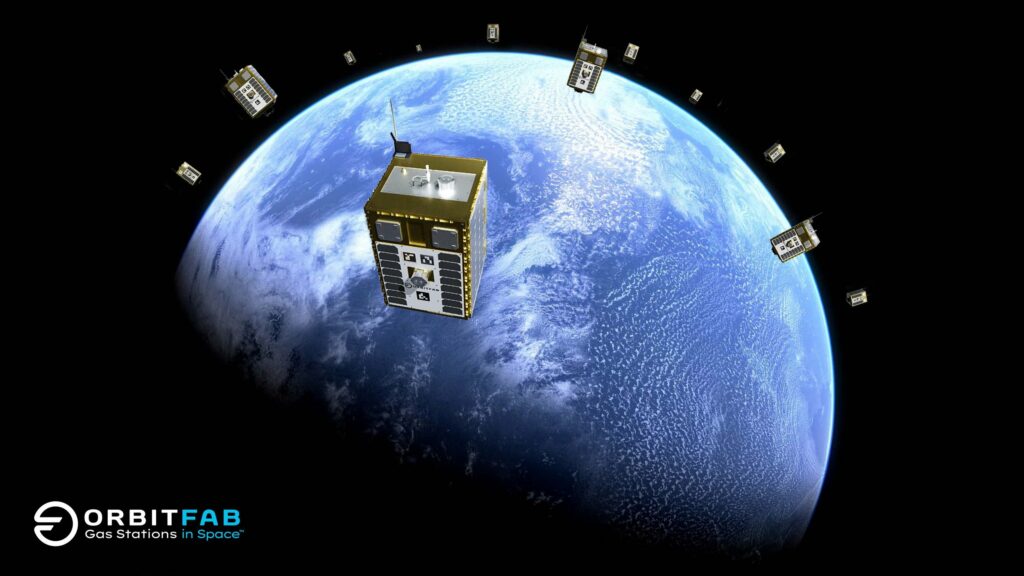The aerospace startup Orbit Fab, which is engaged in creating a network of orbital “fuel stations”, for the first time named the cost of its services. Refueling the satellite in geostationary orbit will cost USD 20 million.

Orbit Fab was founded in 2018. The main goal of the enterprise is to create a network of space tankers and refueling vehicles that deliver fuel to the satellites of the customer companies. During its activity, Orbit Fab has launched a small demonstrator into a sun-synchronous orbit, designed to test the technology of long-term fuel storage. Also, the company’s engineers have developed a universal refueling port RAFTI (Rapidly Attachable Fluid Transfer Interface).
The next step of Orbit Fab will be the launch of a full-fledged space tanker. It will be launched into an orbit passing 300 km above geostationary. Thus, the tanker will not interfere with active geostationary devices, but at the same time it will be located just below the burial orbit. The company plans to carry out the first refueling in 2025.

It is worth noting that since the main part of geostationary satellites does not have a RAFTI port, at first Orbit Fab is going to use its tanker as a refueling station for space tugs. It recently signed a corresponding agreement with Astroscale. In the future, as an increasing number of geostationary satellites will be equipped with the RAFTI port, Orbit Fab plans to establish direct refueling flights. For this purpose, special “fuel shuttles” will be used, which are currently being developed by the company’s specialists.
In addition, Orbit Fab recently announced for the first time the cost of one refueling of a geostationary satellite. It will cost USD 20 million. For this money, Orbit Fab will provide up to 100 kg of hydrazine. The company decided to start with this fuel because it is actively used on both government and commercial spacecraft. In the future, Orbit Fab plans to start working with other types of fuel in other orbits.
According to https://spacenews.com
Follow us on Twitter to get the most interesting space news in time
https://twitter.com/ust_magazine
